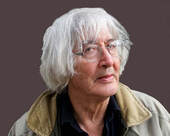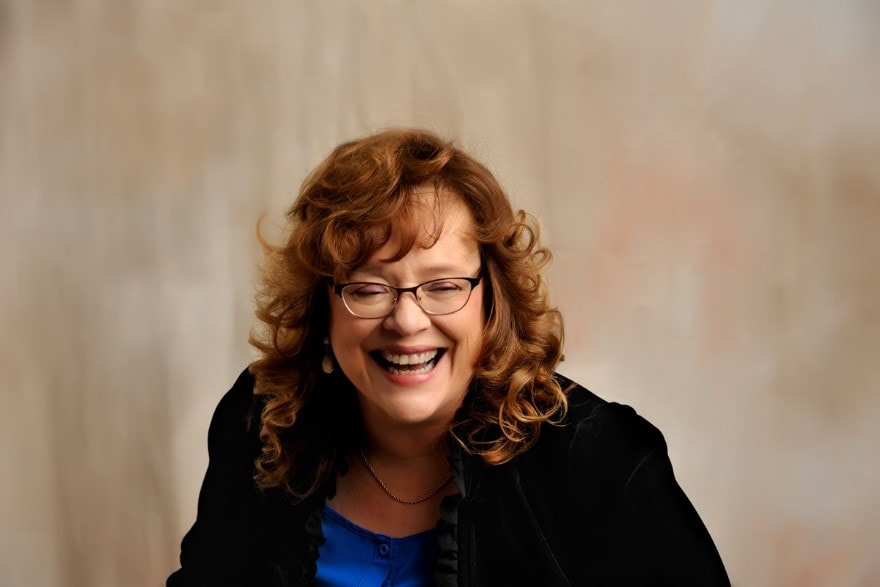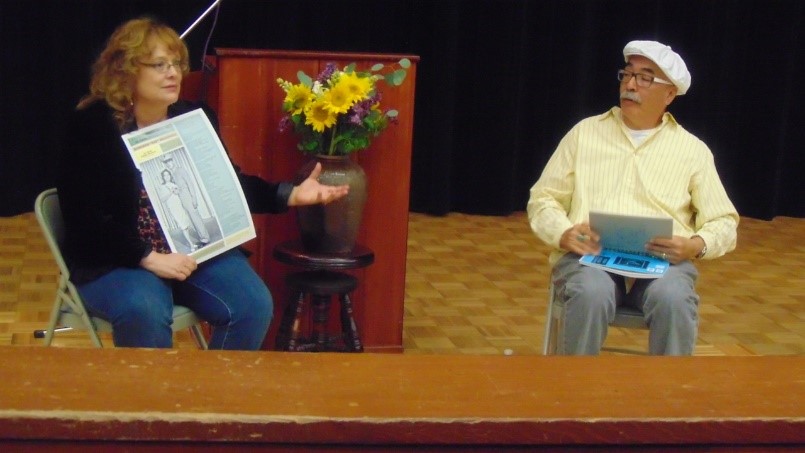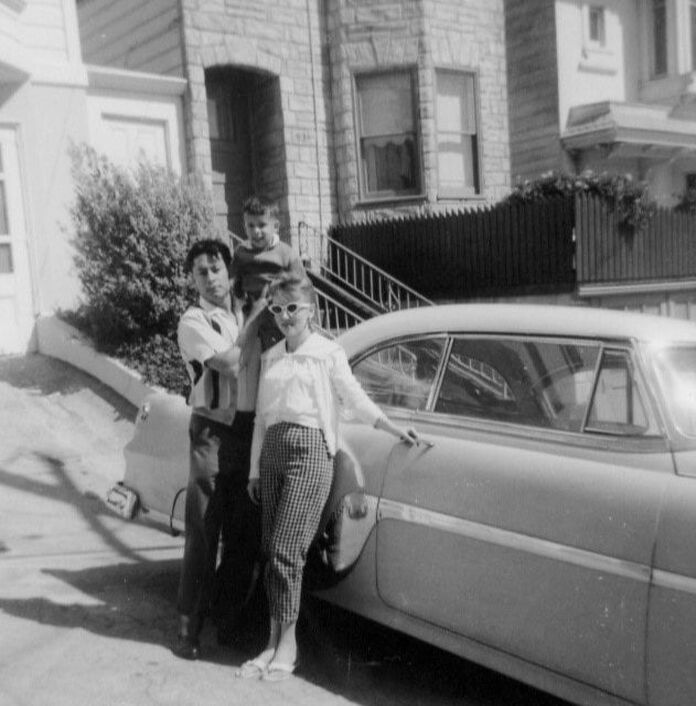|
Thank you to Ivan Argüelles for dedicating “POEM IN THE SHAPE OF AN INVISIBLE VOLCANO” to Somos en escrito! This poem encapsulates our conversation at LitCrawl 2020. It's an honor to present poets of this caliber. Two new poems by Ivan ArgüellesPOEM IN THE SHAPE OF AN INVISIBLE VOLCANO para mis amigos de Somos en Escrito lava flowers colored like evening’s red and gold cities crescent-shaped and buried in a trance of cinders elevated ruins of the only remaining statue of Persephone elegance of hands cut from their pulse and shadowless Moorish architecture of the eyebrows of Vanity symbolism and margin of all phonetic errors power of silent detonations deep within the heart and clamoring for meat of the soul those denied passion stars divided in half at the molten strike of noon rhapsodies of words that have more sound than meaning the shapeless intuition of light to transcend itself in a glorious burst of sunflowers and solar homophones the tryst of lunatic and aphasic in the sewers of Tenochtitlán rain in porphyry torrents pouring from a cloudless sky and mortals like blind birds circling their own destruction with the tiny feet of a lost poetic meter and bewailing the day when thunder and mountain joined forces men who believed the sea was only a hemisphere of sleep and waves always feminine and plural were at the root of the enigma caused by consciousness at birth etymologies of distance and repercussion like drum-rolls in the faint ear of the adolescent afternoon assassin was love ever more futile and gorgeous in its escape ? sentient ovals of the moon in its perpetual fade aspirin and silken ropes that tie the shadow down to a body that has only existed in pharaonic dreams the constant disrepair of language illiteracy of the gramophone and sewing machine the enormous and inexplicable circularities of heat coupled with the mysterious rumors of mummies grief ! legends of the half-formed antiquities of rock tragic association of the sorrowing trigger finger and the dizzying instamatic nature of fire-flies death over and over in small print at the bottom and pages of water and fluid discrepancies of thought rushing in all directions with nowhere to go skies decrepit with the gods of mistaken pronouns oracle and augury and spit-fire demons wayward desires the entire panoply of historic deviation one by one the children and the dead going south volumes of unused scripts the crying at the end the sadness of leaves bereft of their own speech the longing and drift of undetected planets asleep forever between eons of galactic despair 10-25-20 THE SYMPOSIUM “Oímos por espejos” Lorca this afternoon we discuss the state of poetry the archaic oriental ancient unfinished rock formation cliffs of rumor compacted into a few variable sounds the one you left behind in sleep is greater for its absence and the one you keep repeating as you stutter is the divine syllable not meant for human mirrors the ear and its occidental other stilled by a single blade of grass symbol of darkening and grief and as you pause for a moment sitting there discussing the state and condition of the already ruined art of the incomplete you have second thoughts it didn’t come from Ionia it wasn’t even in existence when they came over the Hindu Kush maybe it’s not polite to maintain this symposium and the others ragged hermaphrodites with bodies borrowed from some pre-Christian novel you oppose the direction their loosened vowels are taking projecting solemn auguries about the flight of skies about the inverted afternoons of Hades the Stygian helmsman and his broken oars the overloaded verses of tempest and bird-wing the adorned and adorable dead putti the fringes of sound the mind in its vocabulary of hesitation and phonetic spectra how is one to sleep with a head full of abracadabra and nonsensical whims about the origins of the Muses mountain born and dressed like kites or quicksilver inspirations to song and dance the nodding epithets and glories whatever the discussion is not straightforward drunken tousle-haired young men with skins of antelope or leopard how graceful their presences which just as soon disintegrate and the volume turned way up and cigarette chatter and gods of the sudden entrance appearing and disappearing clatter junk and long draughts of mescal and what can you do your fingers isolated from the rhymes and meters and a host of Latin pejoratives and dialect of rumor and repercussion the sea comes up to your knees and sunsets of Spanish gold and the vitriol of lovers who envy and nothing more what is there to explain and the anthologies spill open flower-fields and names like Eurydice or Beatrice abound and you look over your shoulder at Night secretive and whispering into a bottle that holds the Sybil green and upside-down vatic maniac tongue that none can understand the very bedlam and manicomio that poetry should be you try to assert but for the nymphs holding up drowned Hylas and the rivers rushing to lose identity and name and the Chaos of all human endeavor the critics and circus-masters naysayers and idolaters the fashion-worshippers and finally tiny and redundant in appearance the Rishis naked and dazed smeared with Vedic mantras uttering and stammering with their knees the ultimate truths the One and the Many and the Goddess the shimmer of distance and Echo her manifold faces and hair but for a moment visible before all the smoke and ashes and Memory disappear and left alone in an Empty Room you with the ghosts of Longing and Leaf Silencio ! 10-28-20  Ivan Argüelles is a Mexican-American innovative poet whose work moves from early Beat and surrealist-influenced forms to later epic-length poems. He received the Poetry Society of America’s William Carlos Williams Award in 1989 as well as the Before Columbus Foundation’s American Book Award in 2010. In 2013, Argüelles received the Before Columbus Foundation’s Lifetime Achievement Award. For Argüelles the turning point came with his discovery of the poetry of Philip Lamantia. Argüelles writes, “Lamantia’s mad, Beat-tinged American idiom surrealism had a very strong impact on me. Both intellectual and uninhibited, this was the dose for me.” While Argüelles’s early writings were rooted in neo-Beat bohemianism, surrealism, and Chicano culture, in the nineties he developed longer, epic-length forms rooted in Pound’s Cantos and Joyce’s Finnegans Wake. He eventually returned, after the first decade of the new millennium, to shorter, often elegiac works exemplary of Romantic Modernism. Ars Poetica is a sequence of exquisitely-honed short poems that range widely, though many mourn the death of the poet’s celebrated brother, José.
1 Comment
ADELA NAJARRO THE POET: IN HER OWN WORDS I was born in San Francisco, and then around the age of four or five we moved to the Los Angeles area. We lived in many L.A. suburbs, Downey, Pico Rivera, Cerritos, and Torrance. We moved around a lot. I went to a different school almost every year. I learned to adapt and understand U.S. suburban culture. I also learned how all fluctuates and is indeterminate. My love of writing and ability to play between two languages arose from the randomness of my childhood. My early years were filled with what can best be termed chaotic love, and so I came to understand how the world is not set in one place, language, or mode of seeing, which just happens to be the perfect upbringing for a poet in a post-modern world! I have done a lot of inner work analyzing and articulating my childhood. My family, my memories, mi pasado, fuel my poems, though perhaps not directly in a one-to-one translated narrative. My early memories focus on my father. In one, he is carrying me from the car to the house. My head rests on his shoulder and I have my arms wrapped around his neck. We lived in San Francisco, at the time. We are going up the stairs to the door. In the other, I am in the same doorway, and someone asks my name. I reply “Adelita.” He tells me that my name is Adela and that Adelita is a term of endearment used in the family. Of course, he didn’t use those words since I must have been around four years old and this would have taken place in Spanish. I also have a memory of standing at the top of a street in San Francisco and looking down. I fear falling. My parents and grandparents were born in Nicaragua. Some of my cousins were born here in the U.S. while others were born in Nicaragua. Nearly all family members are now living in the United States. I’m sure there are a few distant cousins in Nicaragua. I don’t know them, but I would like to. Instead, what I do is travel to Nicaragua through my imagination—what was Nicaragua like for my mother, my father, mis abuelas? I love to imagine los pericos in the tropical rainforest and iguanas sunbathing in the branches of barren trees. I have always written. I have memories of writing poems in elementary school. I write to understand my place in the world THE POET'S BIO Adela Najarro is the author of three poetry collections: Split Geography, Twice Told Over and My Childrens, a chapbook that includes teaching resources. With My Childrens she hopes to bring Latinx poetry into the high school and college classroom so that students can explore poetry, identity, and what it means to be a person of color in US society. Her extended family’s emigration from Nicaragua to San Francisco began in the 1940’s and concluded in the eighties when the last of the family settled in the Los Angeles area. She currently teaches creative writing, literature, and composition at Cabrillo College, and is the English instructor for the Puente Project, a program designed to support Latinidad in all its aspects, while preparing community college students to transfer to four-year colleges and universities. Every spring semester, she teaches a “Poetry for the People,” workshop at Cabrillo College where students explore personal voice and social justice through poetry and spoken word. She holds a doctorate in literature and creative writing from Western Michigan University, as well as an M.F.A. from Vermont College, and is widely published in numerous anthologies and literary magazines. Her poetry appears in the University of Arizona Press anthology The Wind Shifts: New Latino Poetry, and she has published poems in numerous journals, including Porter Gulch Review, Acentos Review, BorderSenses, Feminist Studies, Puerto del Sol, Nimrod International Journal of Poetry & Prose, Notre Dame Review, Blue Mesa Review, Crab Orchard Review, and elsewhere. POEMS FROM TWICE TOLD OVER Early Morning Chat with God This morning I’m back to asking for patience. With my cup of coffee I sit outside to say hello to you God, my Jiminy Cricket, my salsa dancing quick-with-a-dip amigo. We have a very collegial relationship. I laugh at all your jokes and praise the wonders of a sky’s watercolors. I know you like me, a benign affection and tolerance as I run around like a chicken with its head cut off, a truly gruesome image, nevertheless hilarious like a grisly cartoon. The blood spurting. The body winding down to zero. The crashing into unforeseen objects. I think if I were back on my great-grandmother’s farm, the farm that I know only through stories my mother tells of Nicaragua, Bluefields, a tortilla filled with just enough, and I saw the long scrawny neck and the axe, I would be sick to my stomach: the aimlessness of her final strut, the reality of blood loss, her claws scratching the dirt, kicking up rocks, a panic. But when she stops, into the pot she goes. A meal, what we need to continue, her flesh simmered off the bone. Truly delicious in a tomato sauce flavored with green peppers and onions. Transformation. The feathers plucked, soil and dust washed away. The table set. Goblets of red wine, white china plates, a cast iron pot twirling a bay leaf scented steam. Then a prayer and gratitude that we have enough to make it through another night alone, a night filled with longing whispers and the turbulence of dreams. Between Two Languages Misericordia translates to mercy, as in God have mercy on our souls. Ten piedad, pity us the poor and suffering, the lost and broken. Have mercy. Ten piedad. Misericordia, a compassionate forgiveness, carries within miseria, misery, the stifled cry on a midnight bus to nowhere, and yes, the hunger, a starless night’s piercing howl, the shadows within shadows under a freeway overpass, the rage that God might be laughing, or even worse, silent, gone, a passing hallucination. Our nerve-wracked bodies tremble. Our eyes have trouble peering into night. Let us hope for more than can possibly be. Señor, ten misericordia de nosotros. And if we are made in the image of God, then we can begin heading toward the ultimate zero, the void that is not empty, forgive ourselves, and remember the three seconds when we caught a glimpse of someone else’s stifling cry. Compassion, then miseria, our own misery intensified by the discordant ringing of some other life. Our ultimate separation. Our bodies intolerably unable to halt the cacophonous clamor of unanswered prayers. But nevertheless we must try for no reason at all. Once more, Señor, ten misericordia de nosotros, forgive us for what we cannot do. Redlands I'm coming to the conclusion that I'm simple, like my mother, my grandmother, father. All of them from Nicaragua where time goes back further. Here, wagons and rifles, the prairie plowed into fields of soybeans and sunflowers. Sunken wood barns and tombstones rattle as a six-by-six tractor-trailer rumbles through exit 41a and on past peach cobbler, a shot of Jim Beam Whiskey, and the Stop'n'Go, 7-11, Circle K, whatever name on that one corner, in that one place, where someone calls the intersection of a convenience store and a gas station their town, their home, their grass. Paint or aluminum siding. A kitchen and carpet. Photos of Aunt Edna and Uncle Charlie. That summer Chuck went for a ride on a Harley under redwoods and past cool stream shadows while Julie, as little girl, slept in a Ford station wagon. Faded blue. Wood paneling peeling open to rust. The back flipped down for her and Ursa Major poured out sky. * In Nicaragua the colors are electric water in air. The weight of clouds on winged cockroaches and crocodiles in streams. La Virgen de Guadalupe. My cousin, Maria Guadalupe Sanchez, on a bike with Brenda through a suburb of Managua on the handlebars. The streets were Miguel, her brother, with a rifle shooting iguanas from a tree in a pickup or Jeep. The huge overbearing green of myriad plants inching their way past monkeys and chickens to a patio whitewashed and cool. The distance away from grandmother. Actually great-grandmother and her son, the witch doctor who could stop malaria with powder or a gaze into trembling hearts. The known ancient crossing to psychology, biology, chemistry. The workings of ourselves. A railroad blasted through mountain. * I want to dance during the Verbenas. I don't know the word or correct spelling. V or a B? Just a sound from a one-time visit to Nicaragua. A celebration. A truck lined with palm fronds in a parade, then dancing. At three in the morning, it was still warm. Verbenas. An old colonial colonel's name? A street? A time to celebrate the harvest of bananas, yucca, corn, beans? I don't know. There was a monkey on a leash, on the roof. The tiles curved from Tía Teresa and Tío Rafael to me being pretty sitting at a table with my first rum and coke. The loss of my virginity was to be a golden icon mined from history where my grandfather was a child hidden under a loose brown skirt and delivered to a convent. Mi abuelita with her eight kids. My aunts and uncles. My mother with us. In college with Philip, a boy standing naked looking out a window, his butt prettier than mine, it was California. There were palm trees. I was correctly 18. I had gone to visit Planned Parenthood. The ladies behind a desk were asking questions and taking notes. With a brown paper bag I waited on grass, in the park, knowing already Interstate 80 divides this nation in two, beginning in San Francisco cutting straight through to New Jersey on the Atlantic Coast. IN CONVERSATION: ADELA NAJARRO (AN) AND LUCHA CORPI (LC)
LC: Adela, I have enjoyed listening to you read some of your poems a few times. Mostly, when we happened to coincide at meetings and readings sponsored by Escritores del nuevo sol in Sacramento and Círculo de poetas and Writers in Oakland. It’s been a treat every time. But quite a double and triple treat now to read and reread your exquisite poetry in solitude, as I prepare for our charla here today. And I am in awe, not just for this pleasure of hearing and reading your poetry. I have also had the opportunity to see you organize public events with an ease that never ceases to amaze me. Also because reading your biographical material I realize that you are a wife, mother, indefatigable professor, community organizer, a “dynamo” poet… and so much more. Above, in your biographical information of your early years, you close your narrative with a line that immediately held my attention: “I write to understand my place in the world.” Could you elaborate? AN: That arises from the idea that poetry is discovery. A rant, a diatribe, a polemic , all make statements about what is already known. The rant is yelling, screaming, crying on the page over events that have happened; the diatribe is an attack; the polemic tries to convince through astute argument. All of these begin from a standpoint of knowing, knowing how one has been wronged, knowing the wrong itself, and knowing how to correct and proceed. That’s not poetry. Poetry has to begin with an open mind that follows language into a discovery or truth. It is through writing that I discover the truth of what surrounds me, in the past, the present, and even in the future; in that sense I come to understand my place in the world. I have no fear. If the truth I find is one of betrayal, hatred, violence, anger, then that is a part of the world I live in. Even so, it surprises me over and over, how writing always takes me to hope. Even when I write about issues that have broken others or myself, I always find beauty. Maybe it’s about being alive, being able to breathe, being able to wake up one more day. Praise God and sing Hallelujah! Poetry and religion merge onto the same roadway in that they both seek the human spirit and lead us to compassion, again, our place in the world. LC: In “Redlands, California,” you tell the story of living in the United States while imaging life in Nicaragua. Could you talk about the context you had in mind when you imagine a homeland, Nicaragua, that you don’t know since you grew up in the United States? AN: My brain developed a duality of language and culture as I grew up. I learned English in pre-school while my first language was Spanish. I was living in U.S. Anglo culture while at home it was all about Nicaragua. So—"Los dos fit better than one alone.” That’s my line from “Conversation with Rubén Darío's ‘Eco y yo’,” which was first published in Nimrod International Journal of Poetry & Prose and appears in my collection, Twice Told Over. Los dos. I view myself in terms of Whitman and Anzaldúa in that I contain multitudes in my mestizaje. I seek an American literary tradition that contains the Anglo, the male, the Latinx, female, and all the range between. There is no set answer, just the flux of words, our thoughts, the daily wakening to a new day that somehow seems old and familiar. “Redlands, California,” has three sections, the first is about life in the States; in the second, I imagine life in Nicaragua; the final section tries to create a new juxtaposition between these two states of being, and, of course, it ties in with sex because what else captures the union of two distinct bodies? The Nicaragua I know is the Nicaragua of my imagination and that of the stories told by my parents, abuelitas, cousins, tías y tíos. I tell and retell their stories to bring them into the literary conversation of the Americas. They matter. They are part of the American story. As a writer it falls to me to create poems that capture this duality of language, culture, immigration, las penas and the joy. LC: Tell us what you will about your creative process. Do you sit down to write at certain times of the day on certain days? What happens if you get inspired while driving or in other similar situations? Do you memorize the lines for the time you finally write the poem where they belong? Or hope for the best? AN: There was a time when I wrote nearly non-stop. I remember being at a job training and writing a poem. I have written poems on napkins. I have written using big orange markers. I feared that if I stopped writing, then the Muse or inspiration would vanish. But it never has. As I accepted that writing was part of my identity, of who I am, and what makes Adela, Adela, I took a couple of days off. Then I wrote about those days. Then I took a few more days off, then wrote new poems. Eventually, I realized that my mind collects ideas, images, language, every waking and sleeping moment. When I sit down to write, it comes out. Then the work becomes revision. Editing. Cutting that which doesn’t belong and expanding that which is hidden, all the while finding the exact words and rhythms. Doesn’t that sound like joy? It is to me. When I write, I am at one with everything. I accept whatever shows up. The pain, the horror, the laughter, the jokes, the image. Right now there is an owl in the eucalyptus tree outside my bedroom patio. Earlier coyotes were howling at sirens, not the moon, but sirens. Someone on their way to a hospital. Tomorrow, a mint leaf will open in a pot. There are spiders in the eaves. Every waking moment holds something and then the world of dreams, the imagination, the possibilities. Here are the final lines to “Conversation with Rubén Darío's ‘Eco y yo’”: Out of the delirium, the sweat, the anxiety of every morning, we weave a soft and tender sea, the mermaids, the song, the possibility, and all begins again. *** Thank you Lucha for this conversation. It is always such a pleasure to see you and collaborate! Hasta la proxíma. Mil gracias, Adela. © Adela Najarro: the poems that appear in this interview are from Twice Told Over, published by Unsolicited Press, 2015, with permission of the author. More information about Adela can be found at her website: www.adelanajarro.com. |
Archives
July 2024
Categories
All
|
Donate and Make Literature Happen
is published by the Somos En Escrito Literary Foundation,
a 501 (c) (3) non-profit, tax-exempt corporation. EIN 81-3162209






 RSS Feed
RSS Feed